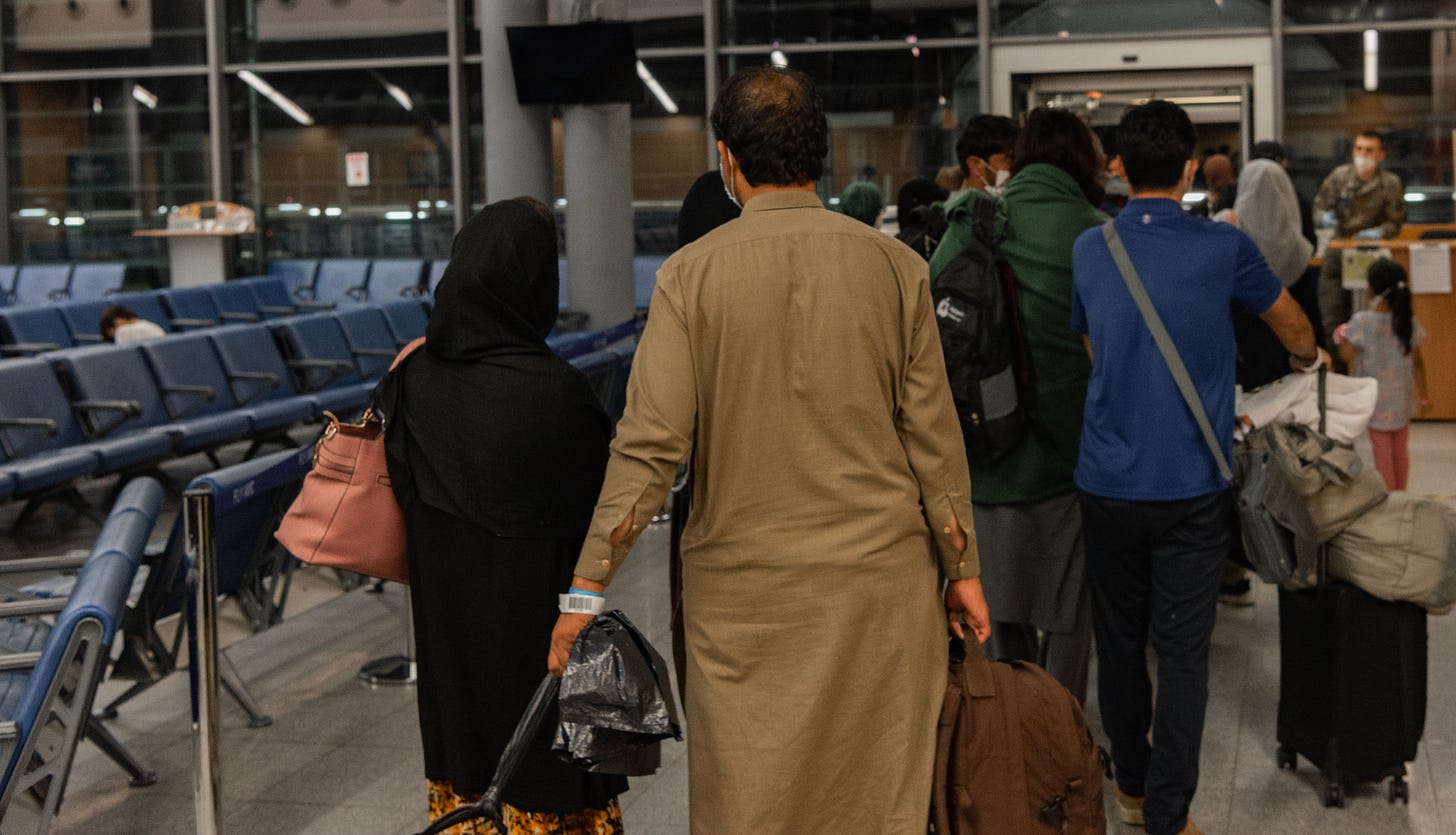
For over twenty years, I’ve spent my life training, studying, and preparing to fight for my country. Even when my country turned its back on our Afghan allies, I, along with thousands of others, tried our very best to “relocate” (IYKYK) thousands of Afghan families to safety. Out of twenty years of futility, it was the only piece of honor that kept many Afghan combat veterans afloat with hope. Now, however, it seems that some of our Afghan allies might be detained and eventually deported.
There’s a possibility that Trump can be reasoned with on this issue. However, that will take a concerted effort from more MAGA-aligned voices. Unfortunately, I believe this cause somehow became partisan when it should’ve been anything but. It’s one of many reasons that I emphasize again and again that this isn’t just Trump’s fault: it’s America’s fault. We’re all responsible for how we fight, win, and lose wars.
Now, I’ll tell you whose fault it isn’t: those Americans who served in Afghanistan and their families, and those who have spent the last three years fighting to salvage our honor as case managers. As we speak, thousands of Americans are scrambling to keep their Afghan allies from being deported as Trump’s July 14 TPS deadline approaches. For these Afghan case managers, their Afghan allies are families and friends. These unsung American heroes, who come from all walks of life, now have to fight—yet again—to keep their families from being deported.
I’ve been speaking with many of them lately. Many of them are struggling. They don’t know what to do.
My best advice is to remember that you cannot control the decisions made by the United States federal government. If President Trump chooses to detain Afghans, apart from legal maneuvers, and considering that the number of immigration attorneys is limited, then I’m not sure what any of us can do.
Let me also suggest that it’s okay to walk away from it all. There’s a lot of guilt associated with leaving Afghanistan—the war, the allies, and the overall cause. Believe me, I suffer from it tremendously. Even though I no longer do case management—and never will again for the rest of my life—I do remember what it feels like: the dread, the anxiety, and the sleepless nights.
I also realize that there’s only so much I can do. I can write about it. And I can talk about it. I can raise a little money for it and give it away immediately. But, in the end, that’s all I can do.
It’s one of the many reasons I’m taking a healthy step back from the movement. Yes, you read that correctly. I believe I’ve said my fair share and done my best. I’ll still come here and write because it’s my medicine, but it’s not going to be so dreary, either.
The American government doesn’t control your honor. Walking away doesn’t make you dishonorable. If it’s time to walk away, then do it. And if you decide to fight to the bitter end, G*d bless you, but remember: you cannot control what the federal government does.
will always stand beside those brave American case managers. You’re in our prayers. And so are the Afghans you protect. Take care of yourselves and your families.


You have done so much in so many different ways --getting so many Afghan families out, doing case management, helping them transition once here, jobs, resumes and of course writing about it all to draw attention to the cause. But there comes a time for veterans and their families that they must set some healthy limits so they can live. You are right to point out that Americans can choose to help also and many will continue in some limited way and others will not , many because they are just trying to survive and don't have the bandwidth. You and a handful of others have been a light and others must take up the fight now as well.